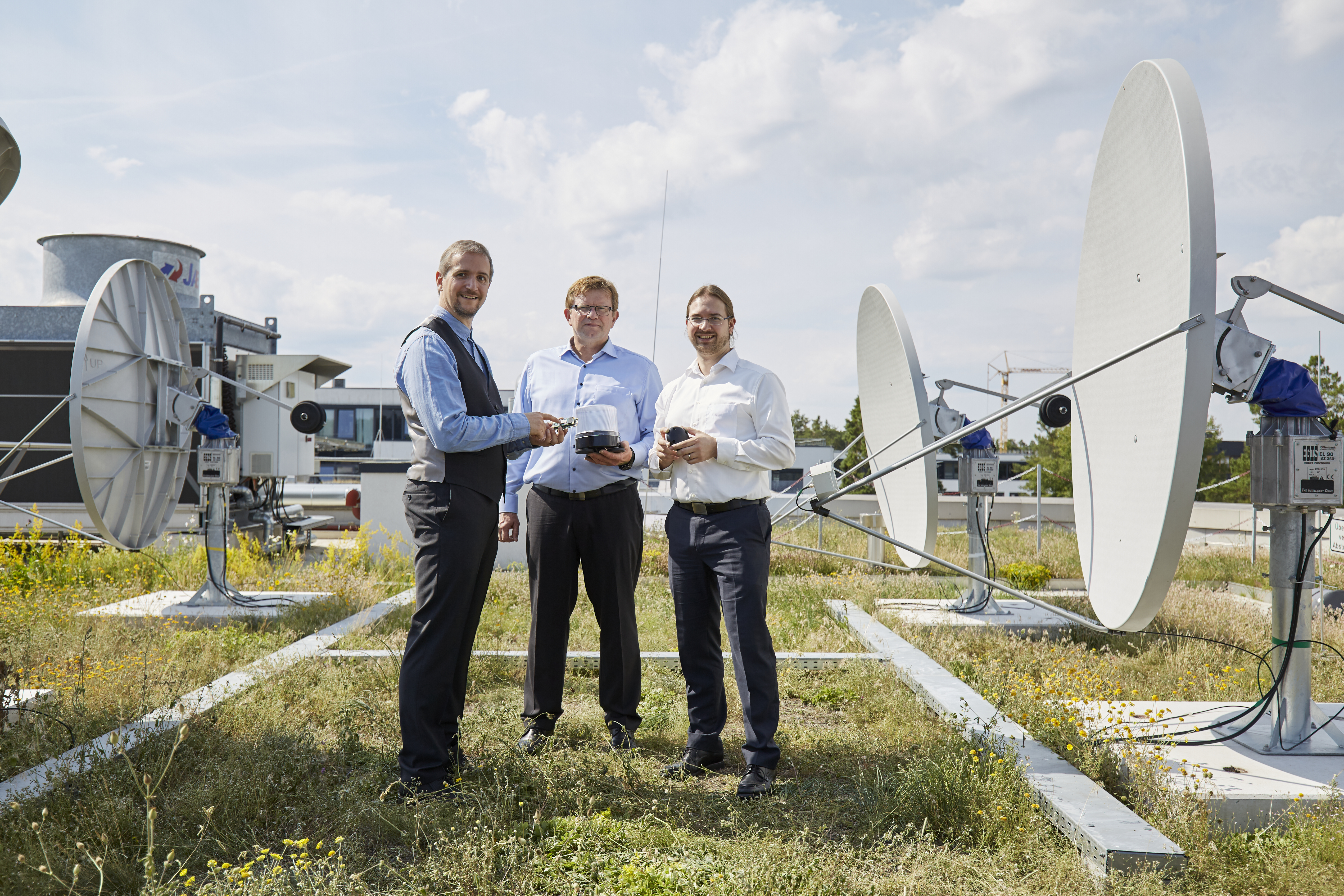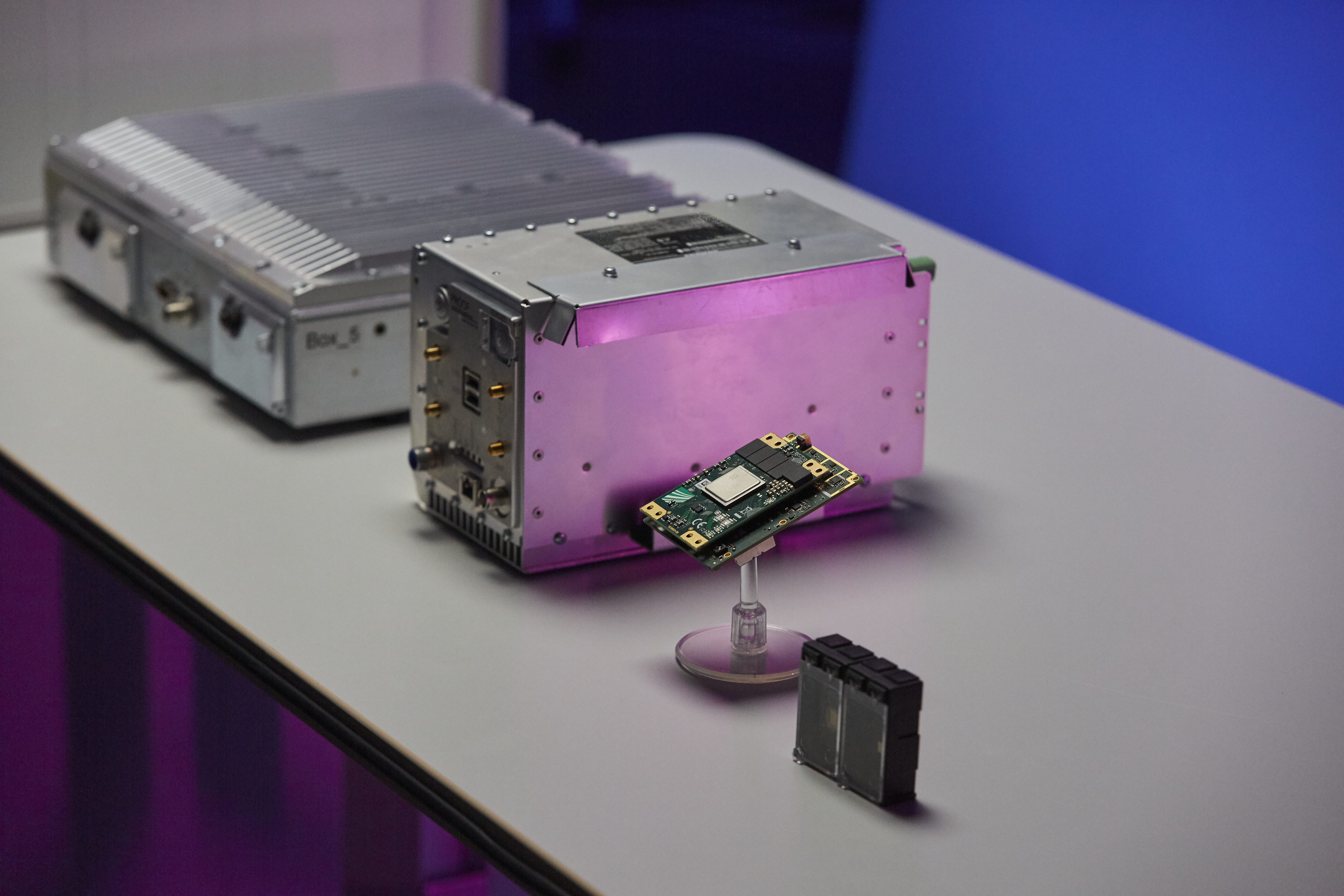Tamper-proof satellite navigation: Fraunhofer IIS wins Joseph von Fraunhofer Prize 2020
Nuremberg: Police, customs, fire brigades, critical infrastructure – they all increasingly depend on satellite navigation. But satnav is easy to disrupt and manipulate. A research team from the Fraunhofer Institute for Integrated Circuits IIS has found a fix for this security predicament. Robust, trustworthy and tamper-proof – with this solution the team receives one of four Joseph von Fraunho-fer Prizes 2020, each endowed with 50,000 euros.


Navigation satellites orbit the Earth some 20,000 kilometers over the planet’s surface at a speed of around four kilometers per second. As they make their rounds, they send a constant stream of data on their current position, including time stamps with atomic-clock accuracy. Many applications depend on this data – everything from car navigation systems to critical infrastructure such as power grids, IT and cellular networks. But this system is vulnerable. Jammers can disrupt satnav data reception. Spoofers can fool navigation systems by providing incorrect information about the time and place. The civilian sector has had no alternative to this unprotected satellite data – until now, that is.
Trustworthy and tamper-proof: The Galileo satellite navigation receiver
A research team at the Fraunhofer Institute for Integrated Circuits IIS in Nuremberg has closed this gap with robust, reliable and tamper-proof receiver technologies based on European Galileo navigation signals. Alexander Rügamer, Dr. Günter Rohmer and Dr. Wolfgang Felber will be awarded the Joseph von Fraunhofer Prize on behalf of the team. Explaining the rationale for its decision, the jury pointed to several achievements, one being the pioneering work in the field of server-based crypto receivers and systems. “The Galileo Public Regulated Service, or PRS system for short, is the world’s first encrypted signal for use in the civilian sector,” says Rügamer. Its benefits are many: Galileo is a civilian European system free of any dependence on the USA or Russia, whose systems are operated by military units. It is also robust enough to foil jamming and spoofing attempts. The Fraunhofer IIS research team has developed a PRS receiver for civilian use that affords access exclusively to authorized users. This receiver technology has already been installed in police cars and fire engines to gain practical experience for future products.
Affordable, miniaturized, low power devices a distinct possibility with server-based receivers
These new types of receivers are too expensive and elaborate for the mass market. “This is why we had to reimagine PRS systems, thinking about them in a completely different way,” says Rohmer. It turns out that these “heaven-sent” signals really only need to be assessed in special server infrastructure instead of in the device. Then the server can send only the verified information on location and time back to the device. The research team at Fraunhofer IIS in Nuremberg now operates the world’s first and so far only PRS server in a setup that includes application demonstrators.
Simulators for testing
Simulators are indispensable in applications development. A PRS signal simulator enables manufacturers and users to answer fundamental questions. How does the receiver respond to rapid acceleration, for example, in an aircraft? Will it work in Australia? Spirent, a British company, built the world’s only commercially available PRS system that serves this purpose. In the wake of Brexit, it can no longer offer products that use PRS signals. These are reserved for EU companies. “This is why we have taken over the further development of PRS components for the PRS signal simulator,” says Felber. The simulator is still from the UK, but everything related to PRS data originates with Fraunhofer IIS.
Tamper-proof satellite navigation
